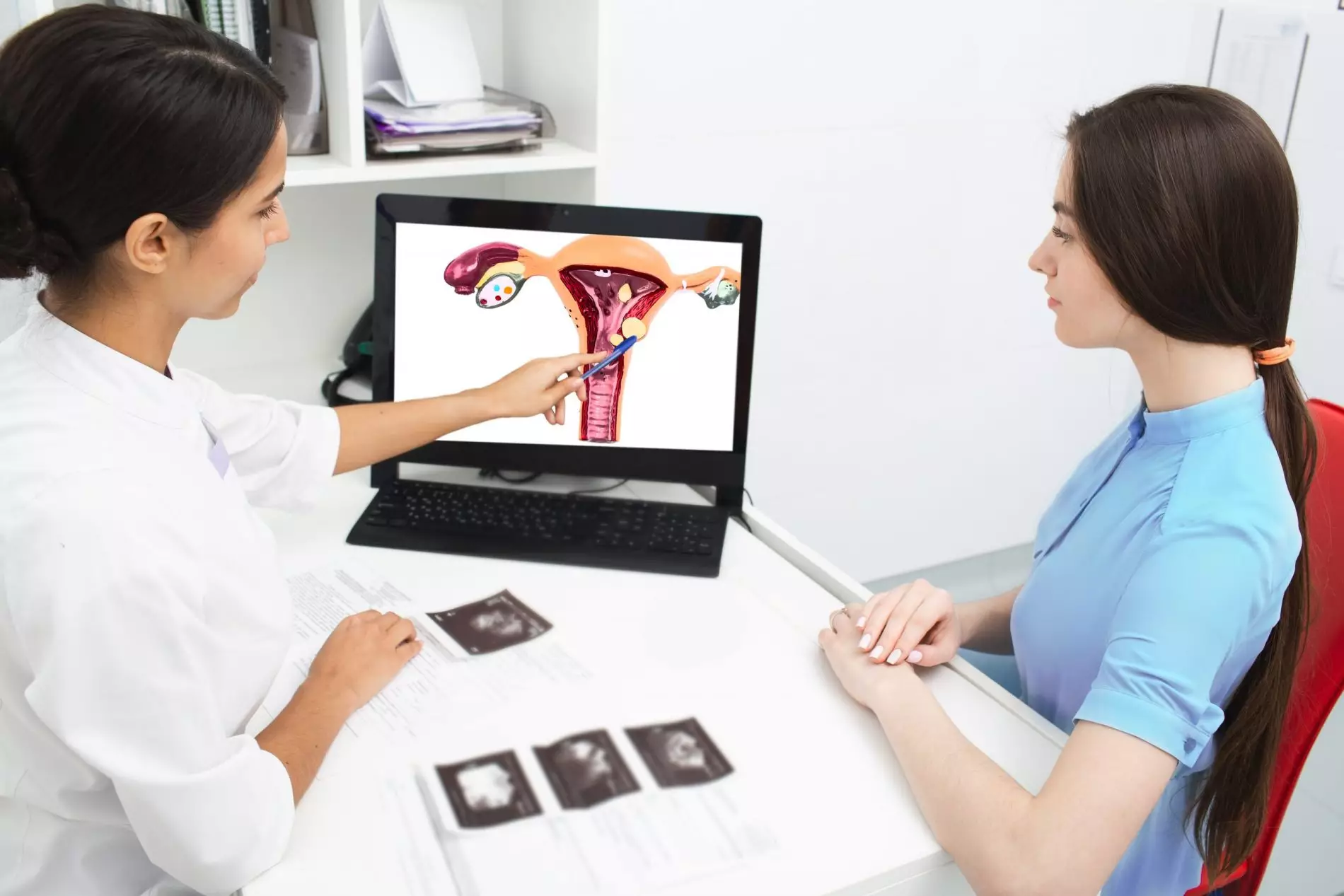Degenerating Fibroids: What You Need to Know
Degenerating fibroids are fibroids that become too large to survive and ultimately start to die off and break down. Uterine fibroids rely on a steady supply of oxygenated blood and nutrients in order to sustain themselves, but when they become too large, it becomes impossible to get enough blood or nutrients to support or sustain their continued growth. If left untreated, degenerating fibroids can lead to a variety of long-term medical issues and acute disruption to comfort and quality of life.
Common complications of degenerating fibroids include fever and acute pain. Each person’s course of treatment for degenerating fibroids will vary based on symptoms, medical risks, age, and several other factors.
What Are the Symptoms of Degenerating Fibroids?

Fibroid Degeneration
(This image is from Shutterstock)
Fibroid degeneration symptoms can be even more painful than live and active uterine fibroids. Some of the most common indicators of degenerating fibroids include:
- Fever or Elevated Body Temperature
- Severe Stabbing Sensation at the Site of the Fibroids
- Swelling of the Abdomen
- Prolonged Pain in the Pelvic Area as the Growth Dies
In more extreme cases, degenerating fibroids can cause heavy bleeding. If this occurs, consult your doctor immediately. The chemicals that are released during the death of fibroid cells are what ultimately cause acute and chronic pain. Other symptoms may include those that mirror fibroids, themselves including fatigue and nausea.
Degenerating Fibroids during Pregnancy
Women who are pregnant and have fibroids may experience fibroid degeneration. This type of degeneration is known as necrobiosis. Primary symptoms of necrobiosis include severe bleeding and sudden sharp abdominal pain. If you’re experiencing these symptoms, make an appointment with your physician or a fibroids specialist to determine the best course of care. Heating pads and ibuprofen can provide short-term relief; however, fibroids during pregnancy, whether active or degenerating, should be monitored by an experienced and qualified medical professional.
Treatment for Degenerating Fibroids
There are multiple ways to treat and manage degenerating fibroids, which will depend upon patients’ individual case history and care needs. NSAID medications can provide some short-term relief, but it’s important to realize that degenerating fibroids are often likely to expand once they get to a smaller size and then begin to degenerate again. For this reason, it’s helpful to seek treatment for uterine fibroids themselves to stop the cycle of degeneration or expansion. Common treatments for uterine fibroids include:
- Hysterectomy – Complete removal of the uterus on which fibroids grow. This option renders patients unable to have children on their own. Women of child-bearing age may want to consider other options prior to hysterectomy.
- Uterine Fibroid Embolization – Non-surgical, minimally-invasive procedure to treat fibroid symptoms, such as heavy menstrual bleeding, bloating, and abdominal pain and pressure.
- Myomectomy – Surgery to remove fibroids without taking out the healthy tissue of the uterus.
- Gonadotropin-releasing hormone (GnRH) agonists – Medications that stop the menstrual cycle and can shrink fibroids.
- Endometrial ablation – Removal or alteration of the uterine lining to control excessively heavy bleeding.
Talk to your physician or fibroids specialist to determine the best option for your fibroid degeneration. Responsum Health is here to help you stay empowered and informed on your journey. Download our Responsum for Fibroids app today to join our community and get the information and support you need.

